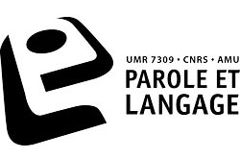
Vendredi 29 novembre 2024
ILCB Lunch Talk
Klaus Zuberbühler
(Université de Neuchâtel, Institut de Biologie, Cognition Comparée)
Revisiting the origins of meaning
11h-12h AMU, Campus St. Charles, Espace Pouillon, 3 place Victor Hugo, Marseille
Séminaire accessible sur réservation

ILCB Lunch Talk
June 2, 2023
Salle des voûtes – Campus Saint Charles – 3 place Victor Hugo – 13003 Marseille
Stéphanie Ries
Associate Professor, San Diego State University
Why we should care about the dorso-medial prefrontal cortex in language production
- 12h Talk Stéphanie Ries
- 13h Lunch
- Confirm your attendance (mandatory) by registering on the ILCB website
Abstract :
The dorso-medial prefrontal cortex (dmPFC), including the supplementary and pre-supplementary motor areas as well as the dorsal anterior cingulate cortex, has been a region of interest in studies of cognitive control and other areas of neuroscience for many years. Yet, traditional models of language production do not typically include this brain region, and its potential role in language and speech production has therefore only been more recently investigated. In this talk, I will review evidence from several research groups (including but not limited to my own) using fMRI, brain stimulation, and scalp and intracranial EEG in “monolinguals” and bilinguals with and without neurological damage that suggest that the dmPFC may play a bigger role than we previously had thought in language production. In particular, it seems likely involved in a response selection mechanism potentially taking place separately from lexical selection, in addition to speech monitoring. The implications of these findings for traditional cognitive models of language production will be discussed.








